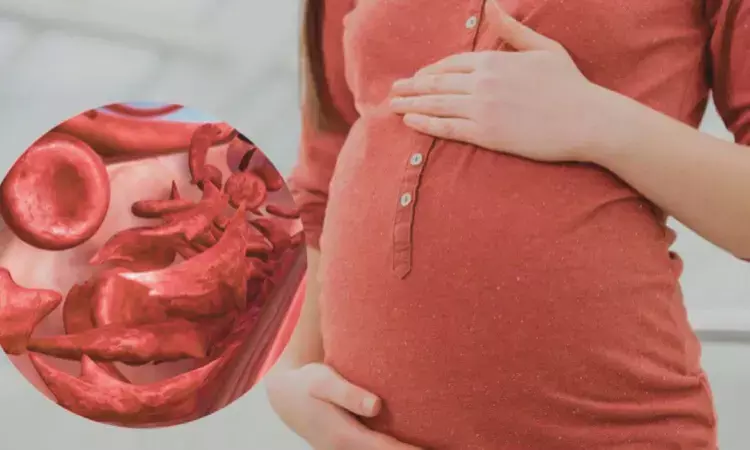- Home
- Medical news & Guidelines
- Anesthesiology
- Cardiology and CTVS
- Critical Care
- Dentistry
- Dermatology
- Diabetes and Endocrinology
- ENT
- Gastroenterology
- Medicine
- Nephrology
- Neurology
- Obstretics-Gynaecology
- Oncology
- Ophthalmology
- Orthopaedics
- Pediatrics-Neonatology
- Psychiatry
- Pulmonology
- Radiology
- Surgery
- Urology
- Laboratory Medicine
- Diet
- Nursing
- Paramedical
- Physiotherapy
- Health news
- Fact Check
- Bone Health Fact Check
- Brain Health Fact Check
- Cancer Related Fact Check
- Child Care Fact Check
- Dental and oral health fact check
- Diabetes and metabolic health fact check
- Diet and Nutrition Fact Check
- Eye and ENT Care Fact Check
- Fitness fact check
- Gut health fact check
- Heart health fact check
- Kidney health fact check
- Medical education fact check
- Men's health fact check
- Respiratory fact check
- Skin and hair care fact check
- Vaccine and Immunization fact check
- Women's health fact check
- AYUSH
- State News
- Andaman and Nicobar Islands
- Andhra Pradesh
- Arunachal Pradesh
- Assam
- Bihar
- Chandigarh
- Chattisgarh
- Dadra and Nagar Haveli
- Daman and Diu
- Delhi
- Goa
- Gujarat
- Haryana
- Himachal Pradesh
- Jammu & Kashmir
- Jharkhand
- Karnataka
- Kerala
- Ladakh
- Lakshadweep
- Madhya Pradesh
- Maharashtra
- Manipur
- Meghalaya
- Mizoram
- Nagaland
- Odisha
- Puducherry
- Punjab
- Rajasthan
- Sikkim
- Tamil Nadu
- Telangana
- Tripura
- Uttar Pradesh
- Uttrakhand
- West Bengal
- Medical Education
- Industry
Iron Supplementation in Early Pregnancy may Increase Infection Risk among Iron deficient and Iron sufficient women: Study

Researchers have found in a new study that women with anemia or iron deficiency (ID) in early pregnancy who received daily iron supplementation (~55 mg elemental iron) experienced more gastric and prolonged respiratory infections compared to iron-sufficient women. Notably, iron-sufficient women given the same dose had nearly double the risk of respiratory illness during pregnancy compared to those with iron deficiency anemia (IDE).
Antenatal iron deficiency (ID) and anaemia, but also elevated ferritin and haemoglobin (Hb) have been associated with morbidity during pregnancy. In South Africa, pregnant women receive routine iron supplementation for anaemia prevention regardless of iron status. Our aim was to assess whether iron status at early pregnancy is associated with infectious morbidity and symptoms during pregnancy.
This prospective cohort was conducted in 250 pregnant women at a public maternal and child hospital in Johannesburg, South Africa. Biomarkers of maternal iron status at < 18 weeks’ gestation were measured. Women kept a symptoms diary throughout pregnancy. Associations were determined using multivariable regression models.
Results: ID women had 2.6 times greater odds for experiencing gastric illness (OR: 2.642, 95% CI: 1.116, 6.255, p = 0.027). Anaemic women (Hb < 10.5 g/dL) tended to have double the duration of respiratory illness [median 15.5 (5.0, 31.0) days] compared to non-anaemic women [median 8.0 (6.0, 12.1) days], (β: 0.167, 95% CI: -0.007, 0.342, p = 0.060) and had more incidences of vomiting throughout pregnancy (p = 0.028). In the partially adjusted models, iron sufficient erythropoiesis (non-IDE) women tended to have 2.3 times increased odds for respiratory illness (OR: 2.314, 95% CI: 0.939, 5.701, p = 0.068) and there were more incidences of fever during pregnancy in the non-IDE group (p = 0.006).
Anaemic and ID pregnant women in this largely overweight population, receiving ~ 55 mg iron daily, experience more and longer infectious morbidity, potentially related to poor iron absorption. However, although presenting with weaker evidence, iron-sufficient erythropoiesis women at early pregnancy receiving the same routine iron supplementation may have twice the risk to contract infectious respiratory illness than IDE women during pregnancy.
Reference:
Goodchild, C., Symington, E.A., Baumgartner, J. et al. Iron status at early pregnancy is associated with infectious respiratory and gastric illness in women receiving routine iron supplementation: the NuPED prospective cohort. BMC Pregnancy Childbirth 25, 657 (2025). https://doi.org/10.1186/s12884-025-07786-8
Dr. Shravani Dali has completed her BDS from Pravara institute of medical sciences, loni. Following which she extensively worked in the healthcare sector for 2+ years. She has been actively involved in writing blogs in field of health and wellness. Currently she is pursuing her Masters of public health-health administration from Tata institute of social sciences. She can be contacted at editorial@medicaldialogues.in.
Dr Kamal Kant Kohli-MBBS, DTCD- a chest specialist with more than 30 years of practice and a flair for writing clinical articles, Dr Kamal Kant Kohli joined Medical Dialogues as a Chief Editor of Medical News. Besides writing articles, as an editor, he proofreads and verifies all the medical content published on Medical Dialogues including those coming from journals, studies,medical conferences,guidelines etc. Email: drkohli@medicaldialogues.in. Contact no. 011-43720751


